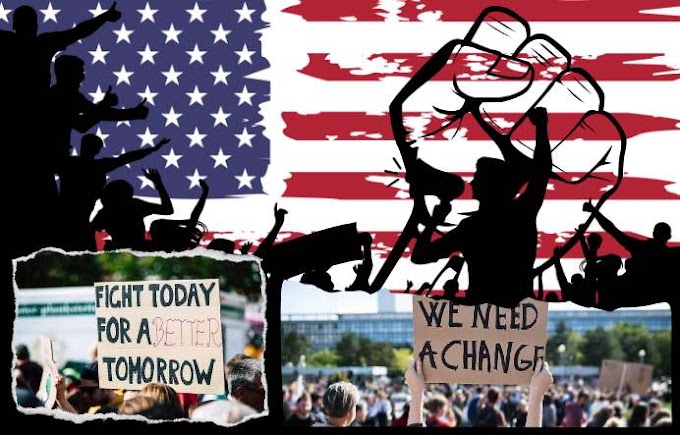The countdown to the launch of the Conference of the Parties to the United Nations Framework Convention on Climate Change (COP28) has begun, as the United Arab Emirates prepares to receive representatives of the countries of the world participating in this conference, which seeks to achieve the highest climate ambitions.
From November 30 to December 12, Expo Dubai will host the “COP28” conference, which will be the largest international conference hosted by the UAE , and the most important global conference focused on addressing the repercussions of climate change .
Climate change and conflict: A double whammy for the Arab world
As the world prepares to meet at the UAE Climate Summit, stark reminders of environmental injustice cast a pall over the Region . Where many were several countries in the Middle East, including Syria, Palestine, Libya, and Sudan, were experiencing instability due to wars, conflicts, and military interventions. Researchers have pointed out that the Arab environment has suffered a serious decline due to wars, in addition to the effects of climate change. This is a critical issue that must be raised by representatives of Arab peoples from civil society and human rights organizations.
The discussions and regional dialogues should also address the Israeli threats to bomb Gaza with nuclear weapons. This is a serious allegation that must be investigated and brought before international courts.
Palestine, a land ravaged by decades of conflict and occupation, faces an environmental crisis of epic proportions, with Israel's actions at the heart of the disaster.
The destruction of infrastructure, including water treatment plants and sewage systems, has exacerbated the situation, creating fertile ground for diseases and epidemics. Asymmetric warfare has crippled Gaza's infrastructure, leading to an almost constant scarcity of electricity.
Amidst this environmental catastrophe, Israel persists in its violations against the Palestinians. A report on the occupation's impact on the environment and natural resources, presented in Geneva, underscored Israel's unfettered plundering of Palestinian natural resources with impunity, including its water reserves and Dead Sea minerals, and its willful disregard for Palestine's environment, depriving it of its vital resources. This has resulted in dwindling water supplies, rampant exploitation of natural resources, and environmental devastation.
White phosphorus: a weapon of environmental destruction
For more than 50 years, Palestine has borne the brunt of Israel's environmental transgressions. Experts confirmed that Israel uses dangerous materials that are internationally prohibited, such as white phosphorus, which is prohibited in war according to Article Three of the Hague Convention. Exposing civilians to biological risks is a flagrant violation of international law.
The Israeli occupation violates all international laws and conventions related to environmental protection. Its use of internationally prohibited weapons of mass destruction, such as chemical and radioactive weapons, white phosphorus, and depleted uranium, contributes significantly to the spread of air pollution and the leakage of hazardous substances into soil, water, and air.
Demolition Waste and Hazardous Materials
The accumulation of demolition waste and hazardous materials exacerbates the environmental crisis. The Israeli army's indiscriminate bombing campaigns have reduced Palestinian cities and towns to rubble, generating massive amounts of debris and toxic materials. This waste is often left untreated, posing a serious risk to human health and the environment.
Furthermore, the bodies of Palestinians killed in Israeli attacks often remain under the rubble, unable to be recovered due to the ongoing conflict. The decomposition of these objects releases harmful toxins into the soil and water, creating a breeding ground for disease.
Conclusion
The occupation's callous disregard for environmental laws and agreements has turned Palestine into a wasteland, in stark contrast to the ideals of climate justice that the world will soon be debating.
The international community, which has long remained silent about Israel's environmental transgressions, must take notice of Palestine's plight. The UAE climate summit provides an opportunity to demand accountability from Israel and begin efforts to restore Palestine's shattered environment.
In addition, participants should discuss the importance of developing a plan to support Gaza after the Israeli war. Researchers have pointed out that the United Nations Compensation Commission (UNCC) supports countries and regions that have been affected by disasters and the destruction of infrastructure due to wars.
Holding Israel responsible for its environmental crimes extends beyond the Gaza Strip. The systematic exploitation of Palestinian natural resources, from water to minerals, must be addressed. Israel's actions constitute a form of environmental genocide, a crime that cannot be ignored.
On the eve of another climate summit, the world must confront the reality of environmental injustice in Palestine. Israel's actions, which have long been shrouded in secrecy, must be highlighted, and the Palestinian people must be granted the right to a healthy and sustainable environment.
Only then can the world begin to address the climate crisis with a clear conscience and a commitment to true environmental justice for all.







